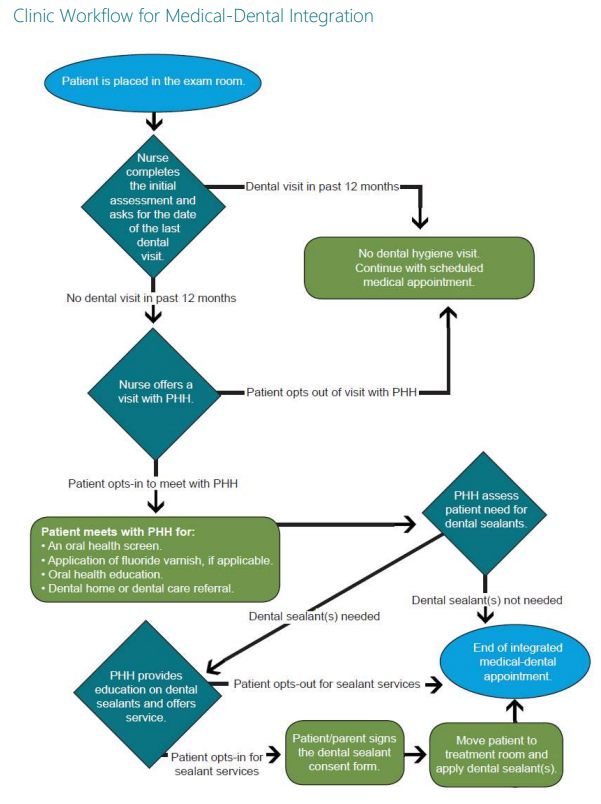The health of the mouth has historically been separated from overall health. People who have low-incomes, are underinsured, uninsured, or on public assistance are less likely to visit a dental clinic but more likely to need dental services.
Recognizing this health inequity, the North Dakota Health and Human Services' Oral Health Program hired a public health hygienist in 2018 to work at the University of North Dakota Center for Family Medicine clinic in Bismarck, N.D. The goal was to increase access to oral health services by placing a public health hygienist in a medical facility to coordinate care and provide screenings, fluoride varnish, education, and referrals as needed.
The public health hygienist also provides oral health education to medical residents and staff and provides direct oral health care preventive services and education to pediatric patients and their families. The public health hygienist works as a member of the medical care team, participating in team huddles, provider meetings, and treatment planning.
Learn More About the Program
- Brief: Improving Health and Dental Care Access in North Dakota, Evaluation of Medical Dental Integration 2023
- Brief: Evaluation of Medical-Dental Integration at the University of North Dakota Center for Family Medicine, 2020-2021
- Brief: Evaluation of Medical-Dental Integration at the University of North Dakota Center for Family Medicine, 2019-2020
- Evaluation Report: Medical-Dental Integration at the University of North Dakota Center for Family Medicine, 2019-2020
- Medical-Dental Integration Manual, 2020
- Benefits of Medical-Dental Integration (2020 poster presentation)
- Toolkit: Oral Health Impacts Overall Health
Clinic Workflow for Medical-Dental Integration
The following is an example of the workflow developed by the medical team at the University of North Dakota Center for Family Medicine in partnership with the public health hygienist (PHH). This is the workflow applied under the MDI pilot project.

